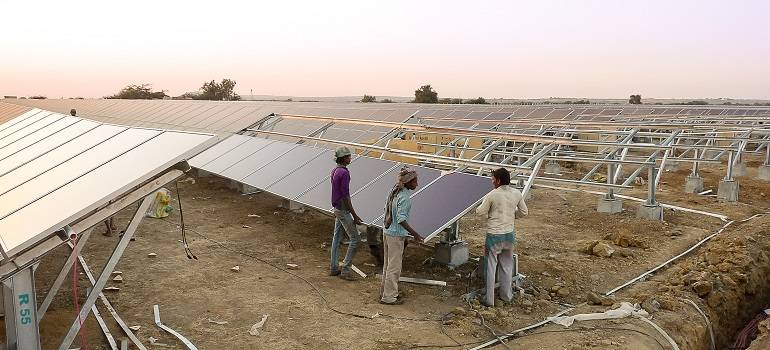The climate crisis is one of the most pressing issues facing our planet today. Rising temperatures, extreme weather events, and sea level rise are just a few of the consequences of human-induced climate change.
To combat this crisis, we need to take immediate and drastic action to reduce our greenhouse gas emissions and transition to renewable energy sources. One of the most promising solutions to this problem is the use of solar panels.
Solar panels, also known as photovoltaics (PV), are devices that convert sunlight into electricity. They consist of a series of solar cells that are made of semiconductor materials, such as silicon. When sunlight strikes the solar cells, it causes a flow of electrons, which generates electricity. The electricity produced by the solar panels can be used to power homes, businesses, and even entire communities.
One of the main benefits of solar panels is that they produce clean and renewable energy. Unlike fossil fuels, which release greenhouse gases and pollutants into the atmosphere, solar panels do not produce any emissions. This means that they do not contribute to climate change or air pollution. In fact, they can actually help to reduce these problems by providing an alternative to fossil fuels.
Another benefit of solar panels is that they are highly efficient. They can produce electricity even on cloudy days and during the winter months, when sunlight is less intense.
They also have a long lifespan, typically lasting for 25 to 30 years, and require very little maintenance. This means that once they are installed, they can produce electricity for many years with very little cost.
Solar panels can also help to create jobs and boost local economies. The installation of solar panels requires the work of electricians, engineers, and other skilled professionals. Additionally, the manufacture of solar panels and other components, such as inverters, creates jobs in the manufacturing sector. Furthermore, the use of solar panels can reduce energy bills and help to stabilize energy prices, which can be especially beneficial for low-income households.
Moreover, solar panels can be installed in both urban and rural areas, providing energy access to remote communities that are not connected to the grid. This can help to improve their standard of living and help to reduce poverty.
In conclusion, solar panels are a vital solution to the climate crisis. They produce clean and renewable energy, are highly efficient, and can create jobs and boost local economies. In addition, they can be installed in both urban and rural areas, providing energy access to remote communities. It’s important to invest in solar panel technology and ensure that more and more people have access to this clean and sustainable energy source, not only to combat the climate crisis but also to improve their standard of living.


